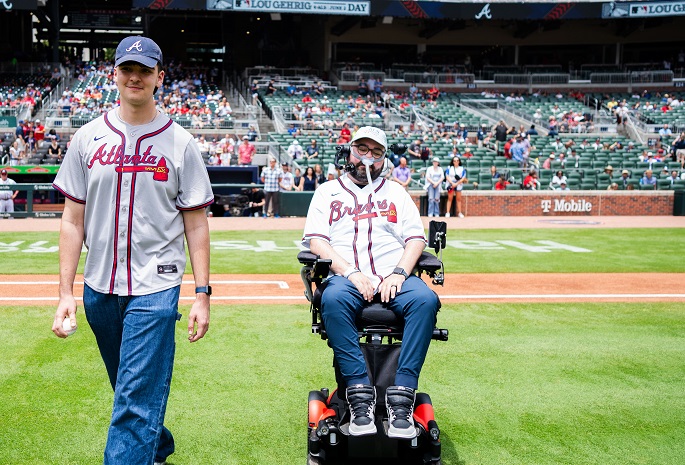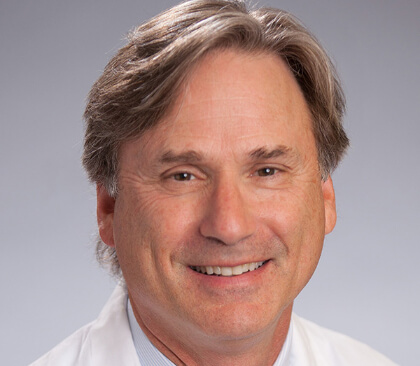Melissa was 34 years old, healthy, active and navigating life with two young sons when she noticed something was off. At first, she chalked up the fatigue and difficulty lifting her baby to the demands of new motherhood.
“You just think you’re postpartum and tired,” she said. But the weakness didn’t go away—it worsened. In June 2023, just seven months after giving birth to her youngest, Melissa was diagnosed with amyotrophic lateral sclerosis, known as ALS.
Often called Lou Gehrig’s disease after the famous baseball player diagnosed with the condition, ALS is a progressive neurodegenerative disease that affects nerve cells in the brain and spinal cord. Over time, patients lose the ability to walk, talk, eat and eventually breathe. There is no known cure and treatments are limited. It’s a devastating diagnosis, especially for someone like Melissa, a young mother in the middle of a vibrant and busy life.
Melissa says, “It didn't feel like something I could accept. I'm not the norm, the demographic. I don't fit into the normal tick boxes of someone with ALS, so it was really hard for us to accept.”


 ALS is a rare disease with about 5,000 people newly diagnosed in the U.S. each year. Early symptoms include muscle twitching, weakness in limbs, slurred speech, or difficulty swallowing. As it progresses, ALS impacts mobility and breathing. Most people with ALS live 2–5 years after diagnosis, though some live longer with the help of specialized care.
ALS is a rare disease with about 5,000 people newly diagnosed in the U.S. each year. Early symptoms include muscle twitching, weakness in limbs, slurred speech, or difficulty swallowing. As it progresses, ALS impacts mobility and breathing. Most people with ALS live 2–5 years after diagnosis, though some live longer with the help of specialized care.
 For most people with ALS, treatment includes managing and slowing the progression of symptoms, as well as maintaining strength and function. After diagnosis, Melissa turned to the experts at the ALS Center at Emory Healthcare —recognized as one of the top ALS clinics in the country. There, she met neurologists
For most people with ALS, treatment includes managing and slowing the progression of symptoms, as well as maintaining strength and function. After diagnosis, Melissa turned to the experts at the ALS Center at Emory Healthcare —recognized as one of the top ALS clinics in the country. There, she met neurologists  Beyond the clinical trial, Melissa is also committed to putting a face to ALS to raise awareness.
Beyond the clinical trial, Melissa is also committed to putting a face to ALS to raise awareness. 

